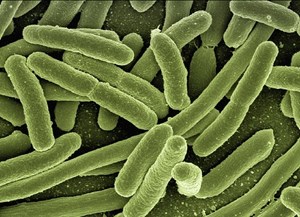Conditions of supply of microbial pathogens: Safety
 The UK Health Security Agency (UKHSA) Board, being the body responsible for the National Collection of Type Cultures (NCTC), the National Collection of Pathogenic Fungi (NCPF) and the National Collection of Pathogenic Viruses (NCPV), and the NCTC, NCPF and NCPV, being the manufacturers and suppliers of potentially hazardous materials, are obliged (under common law and the Health and Safety at Work etc. Act, 1974 [HMSO; ISBN 0-10-543774-3) to issue the following warning and to specify Conditions of Supply, relating to the safe handling of NCTC, NCPF and NCPV cultures.
The UK Health Security Agency (UKHSA) Board, being the body responsible for the National Collection of Type Cultures (NCTC), the National Collection of Pathogenic Fungi (NCPF) and the National Collection of Pathogenic Viruses (NCPV), and the NCTC, NCPF and NCPV, being the manufacturers and suppliers of potentially hazardous materials, are obliged (under common law and the Health and Safety at Work etc. Act, 1974 [HMSO; ISBN 0-10-543774-3) to issue the following warning and to specify Conditions of Supply, relating to the safe handling of NCTC, NCPF and NCPV cultures.
WARNING
All cultures supplied by NCTC, NCPF and NCPV must be regarded as potentially pathogenic, and be handled by, or under the supervision of, competent persons who have received training in microbiological techniques. In the UK this includes compliance, so far as it applies, with "Safe working and the prevention of infection in clinical laboratories and similar facilities" (Health Services Advisory Committee, second edition 2003, HSE Books, ISBN 0-7176-2513-3) and “The Approved List of biological agents” (Advisory Committee on Dangerous Pathogens, 2013) as amended from time to time. In other countries, compliance with national codes of practice is enjoined, or failing such a code, with equivalent WHO publications, or with the above quoted documents.
CONDITIONS OF SUPPLY: SAFETY
1. That the recipient has read the above warning
2. That the cultures will be used by the recipient, or under his/her direct personal supervision, or handled only by persons authorised by the recipient
3. That the cultures will not be handled by any person who has not read a copy of this Notice
4. That certain cultures, considered to be of special hazard, are subject to further conditions laid down in "Hazardous Pathogens"
5. That the responsibility for ensuring the safe handling of the cultures after receipt rests with the recipient. The UKHSA Board, NCTC, NCPF and NCPV cannot take any further responsibility for any untoward events arising from handling NCTC, NCPF and NCPV cultures, following their dispatch to the recipient
HAZARDOUS PATHOGENS
Micro-organisms, among those maintained by NCTC, NCPF and NCPV, are classified as Hazard Group 3 Pathogens are as per “The Approved List of biological agents” (ACDP, 2013 [http://www.hse.gov.uk/pubns/misc208.pdf], wherein special procedures for the handling of these organisms are laid down. It is the End User’s responsibility to ensure that they can handle Hazard Group 3 organisms according to their local and national guidance.
NCTC, NCPF and NCPV cultures of any of the above listed micro-organisms are supplied under the same conditions applying to all cultures and the following further conditions:
1. That the cultures are supplied only in response to a request signed by a Head of Department/Managing Director (or persons authorised by him/her) and whose signature(s) are on deposit with the NCTC, NCPF and/or NCPV by means of the requisite form (obtainable from the relevant collection on request)
2. That the above list of species may be amended by NCTC, NCPF or NCPV in response to advice given by appropriate authorities
3. That these conditions apply to cultures marked on Delivery Notes accompanying consignments of cultures as "Hazard Group 3" (or "Hazardous Pathogens" for the above additional bacterial taxa)
4. That UK orders for the following micro-organisms, listed under the "Specified Animal Pathogens Order 2015", must be accompanied by a copy of a valid licence under that order (obtainable from the Department for Environment, Food and Rural Affairs [DEFRA]) permitting the laboratory to hold or handle such organisms
ADVICE
Cultures listed in the Specified Animal Pathogens Order 2015 will only be provided if the recipients’ laboratory facilities and training of staff conform, so far as it applies, with the Health Services Advisory Committee code of practice and the ACDP document, or overseas, with equivalent national or international codes. If in doubt, the recipient should consult the appropriate regulatory body. In the UK, these bodies are the Health and Safety Executive [HSE] or Department for Environment, Food and Rural Affairs [DEFRA].
Reviewed August 2021
